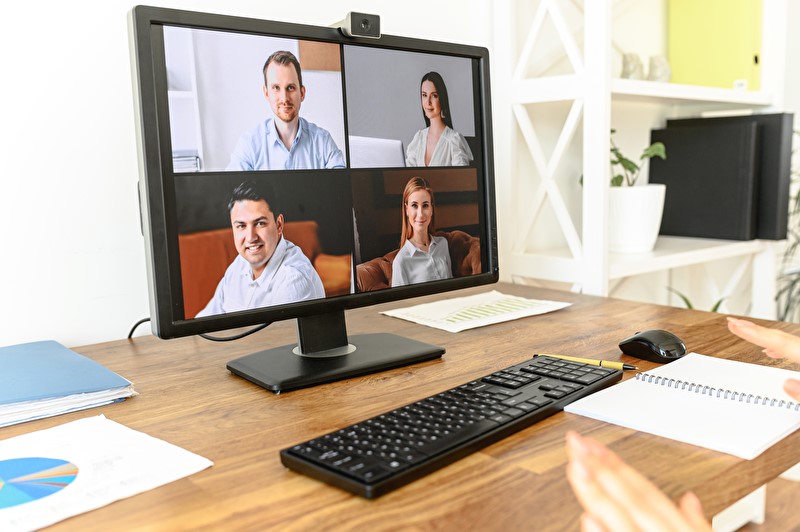Even after the end of the home office obligation in March 2022, most meetings in German companies and organisations continue to take place digitally. A recent study by the University of Konstanz investigated the reasons for this - and offers tips for the transition to a hybrid meeting culture.

According to the University of Konstanz, the corona pandemic has led to a "massive transformation of the working world". But what can be determined now, more than two years after the start of the pandemic? How has working changed?
To answer these and other questions, a team of researchers led by Prof. Florian Kunze from the Future of Work Lab at the University of Konstanz has surveyed 700 representative employees from the German workforce at regular intervals since March 2020 - over ten survey full stops so far. The main focus of the study is to understand how mobile working and working from home affect employees' engagement, productivity, but also emotional exhaustion or social loneliness. "In addition, we want to understand more precisely what framework conditions companies and managers can design to enable a sustainable and successful transformation of the working world towards more mobility and flexibility," writes the researcher in a guest article on the study on haufe.de.
The results show: Even after the end of the home office obligation in March 2022, digital work clearly predominates. One explanation for this comes from the perception of the efficiency and burden of digital meetings compared to face-to-face meetings, writes Kunze: "If our study participants are asked to directly compare digital and face-to-face meetings, the picture is quite clear: More than half of the respondents find digital meetings very efficient (54 per cent) and not very stressful (63 per cent). More than a third (43 percent) even prefer digital meetings to face-to-face meetings, which only 28 percent of respondents prefer. This is an interesting result as it contradicts the otherwise often propagated 'zoom fatigue' discussed in the public debate regarding the many digital video meetings." By the way, //next has compiled tips on how digital meetings can best succeed for you here.
According to the researchers, it is now important for companies and managers to convince their employees why it makes sense to return to a stronger presence for specific meetings in which a lot of personal interaction is required. At the same time, the current transformation could also be an opportunity to rethink the generally excessive meeting culture in the working world and introduce meeting-free days, as SAP, for example, recently announced with Focus Friday, on which no more meetings are to take place. ERGO CDO Mark Klein describes how hybrid working is implemented at ERGO here on //next.
You can find the recommendations of the researchers from Konstanz - as well as all the detailed results and many graphics on the study - here on a landing page of the university:
Text: Ingo Schenk
Most popular